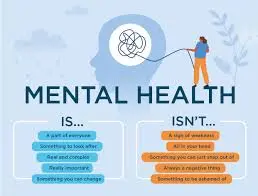Wellcome to subject” Effective Strategies for Stress Management” from Healthy Vita Hub.
In today’s fast-paced world, stress has become an inevitable part of our lives. While a certain level of stress can be motivating, chronic stress can have detrimental effects on both our mental and physical health. Managing stress effectively is crucial for maintaining a healthy and balanced life. Here, we explore effective strategies for stress management that can help you navigate through life’s challenges with greater ease.
Understanding Stress
Stress is a natural response to challenging situations. When you encounter a perceived threat, your body’s “fight or flight” response is triggered, releasing hormones like adrenaline and cortisol. These hormones prepare your body to deal with the threat. However, when stress becomes chronic, it can lead to a variety of health issues, including anxiety, depression, cardiovascular diseases, and a weakened immune system.

Effective Strategies for Stress Management
1. Exercise Regularly
Physical activity is one of the most effective ways to combat stress. Exercise increases the production of endorphins, which are natural mood lifters. It also improves sleep, boosts self-confidence, and reduces symptoms of anxiety and depression. Aim for at least 30 minutes of moderate exercise, such as walking, jogging, or yoga, most days of the week.
2. Practice Mindfulness and Meditation
Mindfulness and meditation are powerful tools for managing stress. Mindfulness involves paying attention to the present moment without judgment. Meditation practices, such as deep breathing exercises, progressive muscle relaxation, and guided imagery, can help reduce stress by calming the mind and body. Even just a few minutes of meditation each day can make a significant difference.

>>> Download Radiant Mastery: Yoga for Mature Age Ebook
3. Maintain a Healthy Diet
What you eat can impact how you feel. A balanced diet rich in fruits, vegetables, whole grains, lean proteins, and healthy fats can help your body better cope with stress. Avoid excessive caffeine, sugar, and alcohol, which can exacerbate stress and anxiety. Staying hydrated is also important, as dehydration can increase stress levels.
4. Get Enough Sleep
Sleep and stress are closely related. Poor sleep can increase stress levels, while excessive stress can interfere with sleep. Aim for 7-9 hours of quality sleep each night. Establishing a regular sleep routine, creating a restful environment, and avoiding screens before bedtime can help improve sleep quality.
5. Connect with Others
Social support is essential for stress management. Connecting with friends, family, or support groups can provide a sense of belonging and security. Sharing your feelings and concerns with trusted individuals can help alleviate stress. Don’t hesitate to seek professional help if needed; talking to a therapist or counselor can provide additional support and coping strategies.
6. Manage Your Time Effectively
Poor time management can lead to stress and burnout. Prioritize your tasks and break them into manageable steps. Use tools like planners or digital apps to organize your schedule. Set realistic goals and deadlines, and don’t be afraid to delegate tasks when necessary. Taking regular breaks and avoiding overcommitment are also key to effective time management.
7. Engage in Relaxation Activities
Incorporating relaxation activities into your daily routine can help manage stress. Activities such as reading, listening to music, gardening, or engaging in hobbies can provide a mental break from stressors. Spending time in nature has also been shown to reduce stress and improve overall well-being.
8. Practice Positive Thinking
Negative thinking can increase stress and anxiety. Practice reframing negative thoughts and focusing on positive aspects of your life. Gratitude exercises, such as keeping a gratitude journal, can help shift your mindset. Surround yourself with positive influences and limit exposure to negative news or social media.
9. Learn to Say No
Overcommitting can lead to increased stress. It’s important to recognize your limits and learn to say no to additional responsibilities when necessary. Setting boundaries and prioritizing your own well-being can help manage stress levels.
10. Seek Professional Help
If stress becomes overwhelming and starts to affect your daily life, seeking professional help is crucial. Therapists, counselors, and psychologists can provide effective strategies for managing stress and addressing underlying issues. Cognitive-behavioral therapy (CBT) and other therapeutic approaches can help you develop healthier coping mechanisms.
Conclusion
Managing stress is essential for maintaining mental health and overall well-being. By incorporating these effective strategies for stress management into your daily routine, you can reduce the impact of stress and improve your quality of life. Remember that it’s important to find what works best for you, as everyone’s stressors and coping mechanisms are different.
Incorporate these strategies into your lifestyle to build resilience and better manage stress. Stay tuned to Healthy Vita Hub for more tips on maintaining a healthy and balanced life!
Read more: 10 Superfoods to Boost Your Immune System
Read more: Enhance Your Running Performance with the Best Calf Compression Sleeves

